7 Quick Facts on Song Dynasty
1.Song Dynasty lasted 319 years in Chinese history.
2.The first banknote and real paper money in the world appeared in the Song Dynasty.
3.The first permanent standing navy was established in the Song Dynasty.
4.Gunpowder was first used in the Song Dynasty.
5.Song Dynasty is composed of Northern Song and Southern Song two periods.
6.The direction of true north was firstly discerned by using a compass in the Song Dynasty.
7.Song Dynasty is the only dynasty in China whose perishing resulted from foreign aggression.
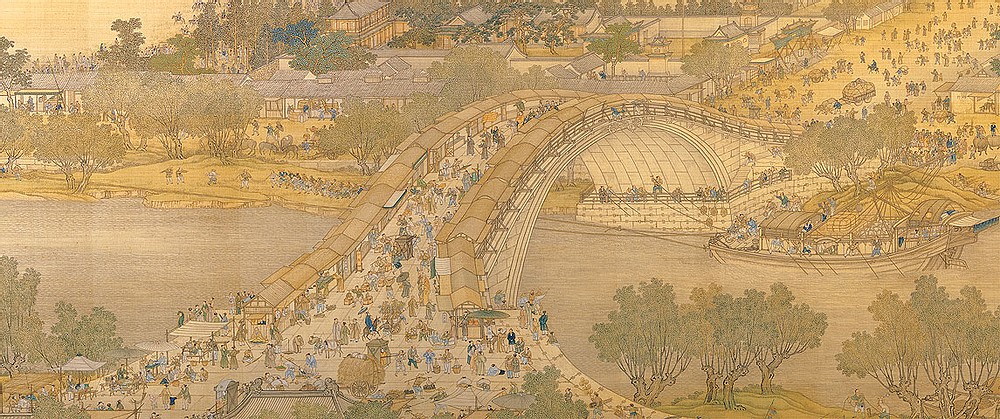
Song Dynasty (960 - 1279) is an imperial dynasty that succeeded in the Period of Five Dynasties and Ten Kingdoms and preceded the Yuan Dynasty. It is divided into Northern Song and Southern Song two phases, totaling 18 emperors and 319 years. In 960, the military mutiny in Chenqiao helped Zhao Kuangyin usurp the throne of the Later Zhou Dynasty and establish the Song Dynasty. To avoid the chaotic situations of separating regimes and eunuch holding powers, Zhao Kuangyin valued the civil officials and deprived the military generals of their power. In the following decades, Northern Song prospered until the Jin Kingdom launched a series of attacks in 1125. After the Jingkang Incident, Northern Song Dynasty ended. King Kang Zhao Gou fled to southern China and established the Southern Song dynasty in Nanjing. In 1276, the Yuan dynasty broke into Lin'an (current Hangzhou, capital of Southern Song Dynasty), resulting in the Southern Song Dynasty's complete fall. The Song Dynasty was a prosperous era for the commodity economy, culture, education, and scientific innovation. Although the Song court was weak and poor, the Song dynasty folks and social economy were better than those in the Tang Dynasty. In terms of culture, the neo- Confucianism emerged, and scientific innovation was rapidly developed. Comparing to other dynasties in Chinese history, the military mutinies, peasant uprisings, and eunuch politics were much less in the Song Dynasty. Therefore, the famous scholar Chen Yange said that the Chinese culture, with thousand years of development, reached the prime times in the Song Dynasty.
Dynasty and establish the Song Dynasty. To avoid the chaotic situations of separating regimes and eunuch holding powers, Zhao Kuangyin valued the civil officials and deprived the military generals of their power. In the following decades, Northern Song prospered until the Jin Kingdom launched a series of attacks in 1125. After the Jingkang Incident, Northern Song Dynasty ended. King Kang Zhao Gou fled to southern China and established the Southern Song dynasty in Nanjing. In 1276, the Yuan dynasty broke into Lin'an (current Hangzhou, capital of Southern Song Dynasty), resulting in the Southern Song Dynasty's complete fall. The Song Dynasty was a prosperous era for the commodity economy, culture, education, and scientific innovation. Although the Song court was weak and poor, the Song dynasty folks and social economy were better than those in the Tang Dynasty. In terms of culture, the neo- Confucianism emerged, and scientific innovation was rapidly developed. Comparing to other dynasties in Chinese history, the military mutinies, peasant uprisings, and eunuch politics were much less in the Song Dynasty. Therefore, the famous scholar Chen Yange said that the Chinese culture, with thousand years of development, reached the prime times in the Song Dynasty.
Order
Name
Reign Years
Capital
Big Events
Mausoleum
Northern Song (960 - 1127)
1
Song Taizu
Zhao Kuangyin
960 - 976
Jianlong (960 - 963)
Qiande (963 - 968)
Kaibao (968 - 976)
Bianliang (current Kaifeng, Henan)
He established the Song Dynasty, significantly weakened the military powers of generals, and strove to complete the unification.
Yongchang Mausoleum in Gongyi, Henan
2
Song Taizong
Zhao Guangyi
976 - 997
Taiping Xingguo (976 - 984)
Yongxi (984 - 987)
Duangong (988 - 989)
Chunhua (990 - 994)
Zhidao (995 - 997)
Bianliang (current Kaifeng, Henan)
Taizong Emperor’s brother, he strengthened the centralized governance and expanded the scale of imperial examination.
Yongxi Mausoleum in Gongyi, Henan
3
Song Zhenzong
Zhao Heng
997 - 1022
Xianping (998 - 1003)
Jingde (1004 - 1007)
Dazhong Xiangfu (1008 - 1016)
Tianxi (1017 - 1021)
Qianxing (1022)
Bianliang (current Kaifeng, Henan)
The third son of the Taizu emperor signed the Chanyuan Alliance with the Liao Kingdom, resulting in heated social contradictions. During his reign, Jiaozi - the earliest paper money appeared.
Yongding Mausoleum in Gongyi, Henan
4
Song Renzong
Zhao Zhen
1022-1063
Tiansheng (1023 - 1032)
Mingdao (1032-1033)
Jingyou (1034 - 1038)
Baoyuan (1038 - 1040)
Kangding (1040 - 1041)
Qingli (1041 - 1048)
Huangyou (1049 - 1054)
Zhihe (1054 - 1056)
Jiayou (1056 - 1063)
Bianliang (current Kaifeng, Henan)
The fourth son of the Zhenzong emperor supported the reform initiated by Fan Zhongyan, which proved to be a failure.
Yongzhao Mausoleum in Gongyi, Henan
5
Song Yingzong
Zhao Shu
1063 - 1067
Zhiping (1063 - 1067)
Bianliang (current Kaifeng, Henan)
The great-grandson of the Taizong emperor, he ruled smoothly.
Yonghou Mausoleum in Gongyi, Henan
6
Song Shenzong
Zhao Xu (顼)
1067 - 1085
Xining (1068 - 1077)
Yuanfeng (1078 - 1085)
Bianliang (current Kaifeng, Henan)
The eldest son of Yingzong emperor, he applied Wang Anshi to reform. During his reign, the first chronicle history book “History As A Mirror” in China was edited.
Yongyu Mausoleum in Gongyi, Henan
7
Song Zhezong
Zhao Xu (煦)
1085 - 1100
Yuanyou (1086 - 1094)
Shaosheng (1094 - 1098)
Yuanfu (1098 - 1100)
Bianliang (current Kaifeng, Henan)
The sixth son of Shenzong emperor advocated the social reform, ended the negotiation with the Western Xia Kingdom, and strengthened the frontier defense system.
Yongtai Mausoleum in Gongyi, Henan
8
Song Huizong
Zhao Ji
1100 - 1125
Jianzhong Jingguo (1101)
Chongning (1102 - 1106)
Daguan (1107 - 1110)
Zhenghe (1111 - 1118)
Chonghe (1118-1119)
Xuanhe (1119 - 1125)
Bianliang (current Kaifeng, Henan)
The eleventh son of the Zhezong emperor, during his reign, incompetent ministers were used, resulting in multiple times of peasant uprisings. In 1127, he was captured by the Jin Kingdom. Although the emperor himself is a failure in ruling a country, he was an artist and created the calligraphy style of slender gold.
Yongyou Mausoleum in Shaoxing, Zhejiang
9
Song Qin Zong
Zhao Huan
1125 - 1127
Jingkang (1126 - 1127)
Bianliang (current Kaifeng, Henan)
Son of Huizong emperor, he lost the Northern Song Dynasty to the Jin Kingdom and was also captured by the enemy.
Yongxian Mausoleum in Gongyi, Henan
Southern Song (1127 - 1279)
10
Song Gaozong
Zhao Gou
1127 - 1162
Jianyan (1127 - 1130)
Shaoxing (1131 - 1162)
Lin’an (current Hangzhou, Zhejiang)
The ninth son of the Huizong emperor established the Southern Song Dynasty, killed the famous loyal general Yue Fei unjustly, and used many treacherous ministers.
Yongsi Mausoleum in Shaoxing, Zhejiang
11
Song Xiaozong
Zhao Shen
1162 - 1189
Longxing(1163 - 1164)
Qiandao (1165 - 1173)
Xunxi (1174 - 1189)
Lin’an (current Hangzhou, Zhejiang)
The great great great great grandson of Taizu emperor, He made peace with the Jin Kingdom.
Yongfu Mausoleum
12
Song Guangzong
Zhao Dun
1189 - 1194
Shaoxi (1189 - 1194)
Lin’an (current Hangzhou, Zhejiang)
The third son of the Xiaozong emperor, he was muddleheaded and henpecked.
Yongchong Mausoleum in Shaoxing, Zhejiang
13
Song Ningzong
Zhao Kuo
1194 - 1224
Qingyuan(1195 - 1200)
Jiatai (1201 - 1204)
Kaixi (1205 - 1207)
Jiading (1208 - 1224)
Lin’an (current Hangzhou, Zhejiang)
The second son of Guangzong emperor signed the humiliating agreement of the "Jiading Peace Treaty” with the Jin Kingdom.
Yongmao Mausoleum in Shaoxing, Zhejiang
14
Song Li Zong
Zhao Yun
1224 - 1264
Baoqing (1225 - 1227)
Shaoding (1228 - 1233)
Duanping(1234 - 1236)
Jiaxi (1237 - 1240)
Chunyou (1241 - 1252)
Baoyou (1253 - 1258)
Kaiqing (1259)
Jingding (1260 - 1264)
Lin’an (current Hangzhou, Zhejiang)
The adopted son of the Ningzong emperor established the dominating position of neo- Confucianism and allied with Mongol people to destroy the Jin Kingdom.
Yongmu Mausoleum in Shaoxing, Zhejiang
15
Song Duzong
Zhao Qi
1264 - 1274
Xianchun(1265 - 1274)
Lin’an (current Hangzhou, Zhejiang)
The nephew of the Lizong emperor, he was luxurious, extravagant, and connived with the powerful minister. The Southern Song Dynasty was at stake.
Yongshao Mausoleum in Shaoxing, Zhejiang
16
Song Gongdi
Zhao Xi’an
1274 - 1276
Deyou (1275 - 1276)
Lin’an (current Hangzhou, Zhejiang)
The eldest son of Duzong emperor, during his reign, the Yuan Dynasty army broke into Lin’an and seized the emperor himself. In 1288, Gongdi went to Tibet and became a monk until he died.
17
Song Ruizong
Zhao Shi
1276 - 1278
Jingyan (1276 - 1278)
Lin’an (current Hangzhou, Zhejiang)
The second son of Duzong emperor, during his ruling, the Southern Song army was defeated again and again.
Yongfu Mausoleum
18
Song Huaizong
Zhao Bing
1278 - 1279
Xiangxing (1278 - 1279)
Lin’an (current Hangzhou, Zhejiang)
The third son of the Duzong emperor lost the Southern Song Dynasty to Yuan Dynasty and became the last emperor of the Song Dynasty.
Song Shaodi’s Tomb in Chiwan, Shenzhen
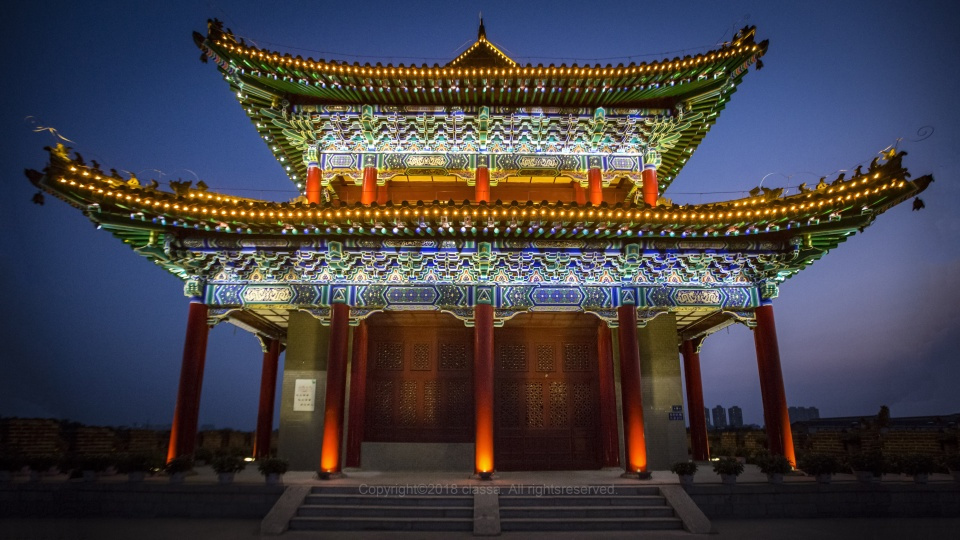
In 960, general Zhao Kuangyin from the Later Zhou Dynasty usurped the throne and established the Song Dynasty. He settled Bianjing (current Kaifeng) as the new capital city and continued to unify the whole country. After he died in 976, his brother Zhao Guangyi ascended the throne and proceeded his brother’s unification and regained many territories belonging to the previous Tang Dynasty. Zhao Guangyi took hobbies in poems and calligraphy, which influenced the Song government to attach great importance to cultural development. In 997, Zhao Guangyi’s son Zhao Heng came to the throne, a prosperous time in the Song Dynasty.
Song Zhenzong Zhao Heng was diligent and attentive about state affairs; he applied loyal ministers and created the era of Xianping’s Reign. In 1004, a large scale of war broke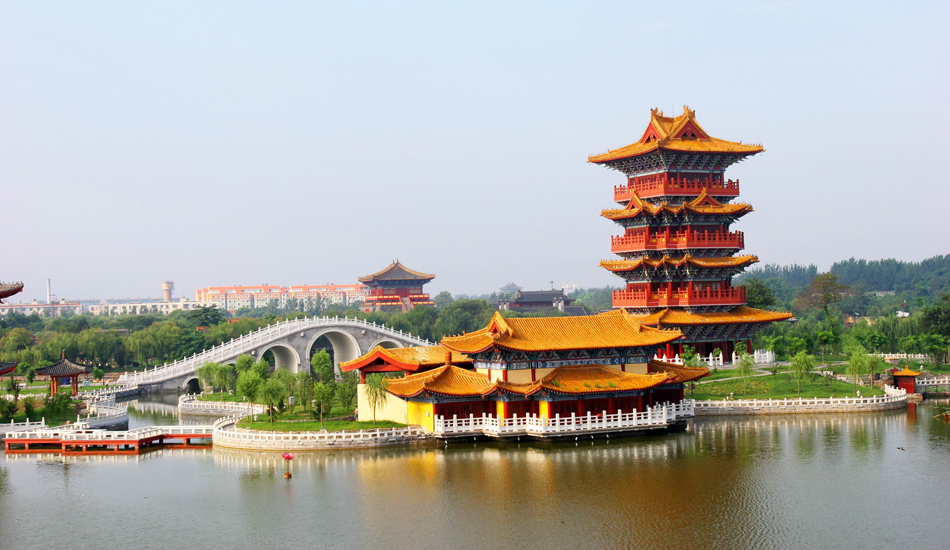 out between the Liao Kingdom and Song Dynasty; the emperor personally led the army and encouraged the soldiers to defeat the Liao army, resulting in the Alliance of Chuanyan. In 1022, with the death of Zhao Heng, Zhao Zhen became the emperor. Sixteen years later, endless wars broke out between the Western Xia Kingdom and the Song Dynasty, and the latter was beaten again and again. To save the country, Song Renzong Zhao Zheng appointed many capable ministers like Fan Zhongyan, Lv Yijian, Fu Bi, Bao Zheng, and others to implement the Qingli Reform and achieved excellent results. The country entered the most prosperous time. Later, the emperor was instigated by other ministers and deposed those contributing ministers. After Song Renzong died, Song Yingzong Zhao Shu ascended the throne and reused the competent ministers. Meanwhile, he also initiated the historical work of Zi Zhi Tong Jian (History As A Mirror).
out between the Liao Kingdom and Song Dynasty; the emperor personally led the army and encouraged the soldiers to defeat the Liao army, resulting in the Alliance of Chuanyan. In 1022, with the death of Zhao Heng, Zhao Zhen became the emperor. Sixteen years later, endless wars broke out between the Western Xia Kingdom and the Song Dynasty, and the latter was beaten again and again. To save the country, Song Renzong Zhao Zheng appointed many capable ministers like Fan Zhongyan, Lv Yijian, Fu Bi, Bao Zheng, and others to implement the Qingli Reform and achieved excellent results. The country entered the most prosperous time. Later, the emperor was instigated by other ministers and deposed those contributing ministers. After Song Renzong died, Song Yingzong Zhao Shu ascended the throne and reused the competent ministers. Meanwhile, he also initiated the historical work of Zi Zhi Tong Jian (History As A Mirror).
During Song Shenzong’s reign, many policies set in the early Song Dynasty failed the system, and Liao and Western Xia Kingdoms also imposed a significant threat to the country. In this scenario, the emperor used Wang Anshi to profoundly reform and strengthen the country on some levels. Unfortunately, the natural disasters, interior sabotages, and the shortcomings of the reform itself doomed the experiment. Song Shenzong also paid attention to foreign aggression. In 1072, he launched a series of wars against the Western Xia Kingdom and won the first victory. In 1081, another expedition was made by the Song court against Western Xia, but this time, the Song army failed hard. In despair, Song Shenzong died. When Song Zhezong ascended the throne in 1085, the factionalism developed so seriously that the emperor couldn't even rule smoothly. The Zhezong emperor finally made peace and promoted the reformative ministers.
country. In this scenario, the emperor used Wang Anshi to profoundly reform and strengthen the country on some levels. Unfortunately, the natural disasters, interior sabotages, and the shortcomings of the reform itself doomed the experiment. Song Shenzong also paid attention to foreign aggression. In 1072, he launched a series of wars against the Western Xia Kingdom and won the first victory. In 1081, another expedition was made by the Song court against Western Xia, but this time, the Song army failed hard. In despair, Song Shenzong died. When Song Zhezong ascended the throne in 1085, the factionalism developed so seriously that the emperor couldn't even rule smoothly. The Zhezong emperor finally made peace and promoted the reformative ministers.
With no son left to ascend the throne, Song Zhezong demised the throne to his brother Zhao Ji, aka Song Huizong. The new emperor was extravagant, ignorant, and only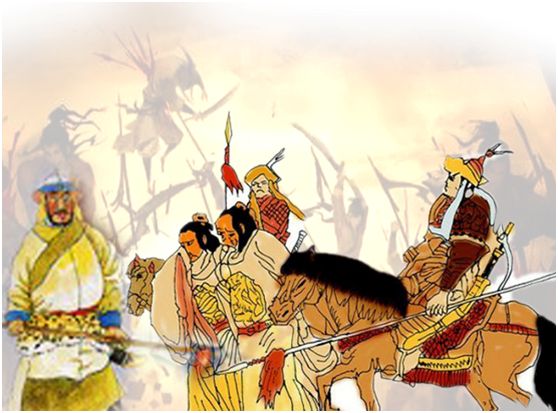 interested in art, calligraphy, and painting. He left the state affairs at Cai Jing, a treacherous, autocratic, and selfish man. In 1118, when the Jin Kingdom attacked the Liao Kingdom, the Song court made an alliance with the Jin Kingdom and joined the attack. However, when the Song army met defeat, the Jin army turned against the Song army as well. In a panic, Song Huizong demised the throne to his son Song Qinzong. In 1126, the Jin army broke into the capital Kaifeng and demanded tons of wealth. To save the throne, Song Huizong exploited and plundered the commons. A year later, Song Huizong and Song Qinzong became were both prey. Northern Song Dynasty perished.
interested in art, calligraphy, and painting. He left the state affairs at Cai Jing, a treacherous, autocratic, and selfish man. In 1118, when the Jin Kingdom attacked the Liao Kingdom, the Song court made an alliance with the Jin Kingdom and joined the attack. However, when the Song army met defeat, the Jin army turned against the Song army as well. In a panic, Song Huizong demised the throne to his son Song Qinzong. In 1126, the Jin army broke into the capital Kaifeng and demanded tons of wealth. To save the throne, Song Huizong exploited and plundered the commons. A year later, Song Huizong and Song Qinzong became were both prey. Northern Song Dynasty perished.
After the Jingkang Incident, Jin Kingdom seized many Song imperials except the King Kang Zhao Gou. In 1127, he escaped southwards to Nanjing, 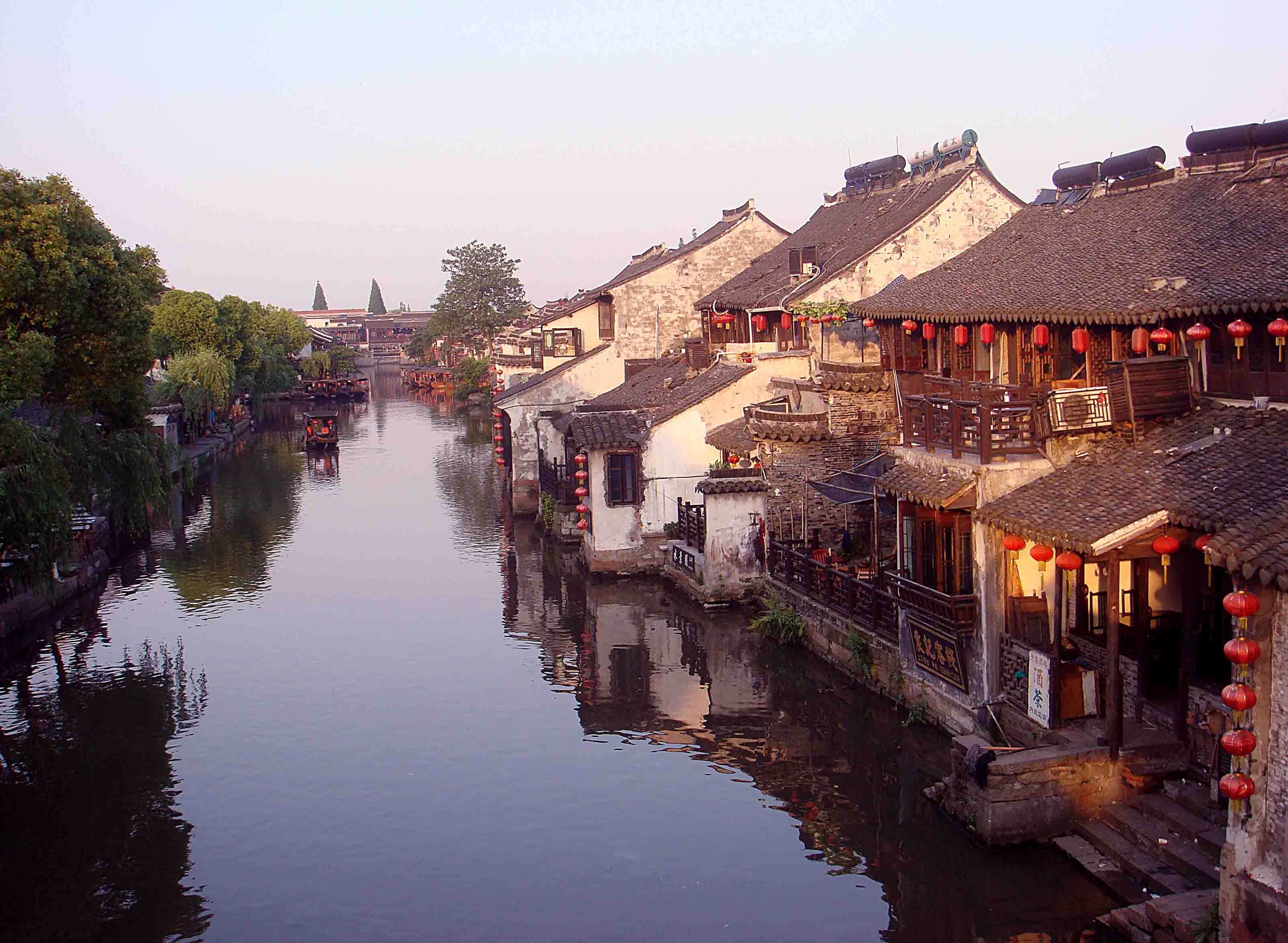 claimed himself Song Gaozong, and established the Southern Song Dynasty. However, with the powerful Jin army chasing behind, Song Gaozong was on flee all the time. He appointed Han Shizhong and Yue Fei to fight against the Jin army and temporarily settled in Lin’an (current Hangzhou). In the following decades, the valiant general Yue Fei expedited northwards to defeat the Jin army multiple times. In 1141, the Song court made the Shaoxing Peace Treaty with the Jin Kingdom and agreed to offer yearly tribute to the Jin Kingdom. Since then, the Southern Song Dynasty was stable for several decades. In 1161, Song Gaozong demised the throne to Song Xiaozong.
claimed himself Song Gaozong, and established the Southern Song Dynasty. However, with the powerful Jin army chasing behind, Song Gaozong was on flee all the time. He appointed Han Shizhong and Yue Fei to fight against the Jin army and temporarily settled in Lin’an (current Hangzhou). In the following decades, the valiant general Yue Fei expedited northwards to defeat the Jin army multiple times. In 1141, the Song court made the Shaoxing Peace Treaty with the Jin Kingdom and agreed to offer yearly tribute to the Jin Kingdom. Since then, the Southern Song Dynasty was stable for several decades. In 1161, Song Gaozong demised the throne to Song Xiaozong.
Song Xiaozong was a relatively good emperor; he reformed the administration and reorganized the army to regain the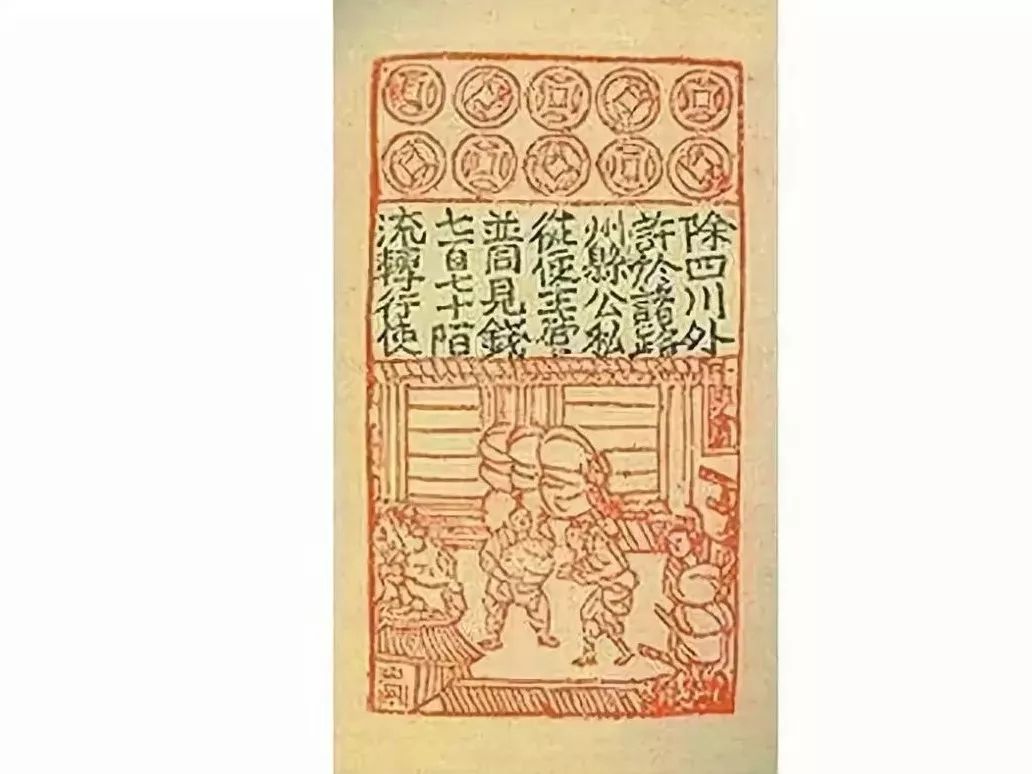 central China territories. However, his big picture was broken when the Song army was crushingly defeated in 1163. Song court had no choice but to sign the Longxing Peace Treaty with the Jin Kingdom a year later. Still, Song Xiaozong wanted to restore the whole of China's unification, so he continued the reform and created a relatively good phase. When his father, Song Gaozong, died, Song Xiaozong was too sorrowful to attend the state affairs. His son Song Guangzong ascended the throne. Unlike his predecessors, the new emperor was suspicious of everyone; he got mad two years later. In 1195, Song Ningzong Zhao Kuo became the emperor.
central China territories. However, his big picture was broken when the Song army was crushingly defeated in 1163. Song court had no choice but to sign the Longxing Peace Treaty with the Jin Kingdom a year later. Still, Song Xiaozong wanted to restore the whole of China's unification, so he continued the reform and created a relatively good phase. When his father, Song Gaozong, died, Song Xiaozong was too sorrowful to attend the state affairs. His son Song Guangzong ascended the throne. Unlike his predecessors, the new emperor was suspicious of everyone; he got mad two years later. In 1195, Song Ningzong Zhao Kuo became the emperor.
In the early times of Song Ningzong’s reign, Zhao Nuyu, a loyal person with good merits, was the prime minister. However, according to the regulations set by the Song Taizu that no prime minister was allowed in Song court, several ministers with Han Tuozhou as leader framed and 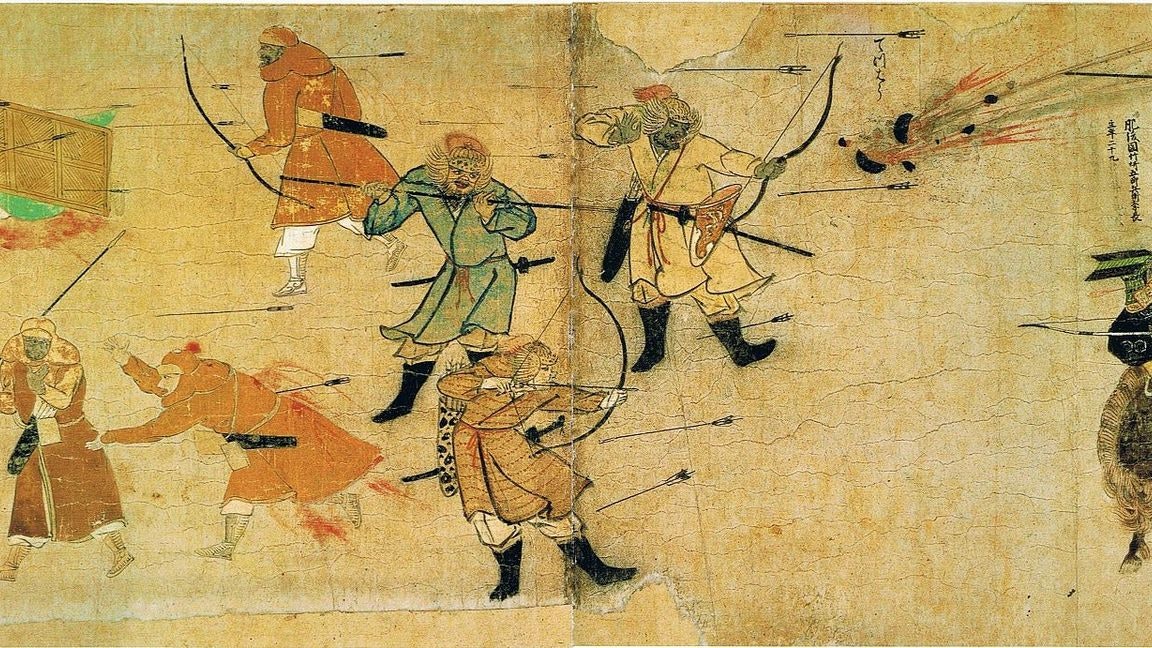 fomented the emperor to dismissed Zhao Nuyu. The time of Han Tuozhou’s dictatorship began. In 1206, Han ordered the Song army to expedite north and failed, which resulted in his own murder by Shi Miyuan. The autocratic times of Shi Miyuan started. During Shi’s ruling, Song Lizong Zhao Yun was propped up to be the emperor in 1224. Nine years later, with Shi Miyuan’s death, Song Lizong finally ruled personally and launched a series of reforms. In 1232, the Mongolian Kingdom began to attack the Jin Kingdom. To make sure that the Song court won't go its back, the Mongolian Kingdom made an alliance in the premise of giving back Henan territory to the Song court after the victory. In 1234, the Jin army was utterly annihilated, and the Jin Kingdom fell apart.
fomented the emperor to dismissed Zhao Nuyu. The time of Han Tuozhou’s dictatorship began. In 1206, Han ordered the Song army to expedite north and failed, which resulted in his own murder by Shi Miyuan. The autocratic times of Shi Miyuan started. During Shi’s ruling, Song Lizong Zhao Yun was propped up to be the emperor in 1224. Nine years later, with Shi Miyuan’s death, Song Lizong finally ruled personally and launched a series of reforms. In 1232, the Mongolian Kingdom began to attack the Jin Kingdom. To make sure that the Song court won't go its back, the Mongolian Kingdom made an alliance in the premise of giving back Henan territory to the Song court after the victory. In 1234, the Jin army was utterly annihilated, and the Jin Kingdom fell apart.
However, when the Song army entered Kaifeng to take over Henan, it was ambushed by the Mongolian military and lost countless soldiers. Song Lizong failed to restore the army and ignored state affairs entirely for the next 30 years. In 1264, the retarded Song Duzong Zhao Qi became the emperor and left the state affairs to the bane Jia Sidao. While in the north, the Mongolian regime grew more robust and more aggressive. It launched a series of wars against the Southern Song court, but all failed. In 1259, the Mongolian Khan died in a battle with the Song army, his brother Kublai decided to go back north and ascend the throne. Song court seized the opportunity and made peace with Kublai. In 1271, Kublai established the Yuan Dynasty in Dadu (current Beijing). Three years later, Song Duzong died.
army and ignored state affairs entirely for the next 30 years. In 1264, the retarded Song Duzong Zhao Qi became the emperor and left the state affairs to the bane Jia Sidao. While in the north, the Mongolian regime grew more robust and more aggressive. It launched a series of wars against the Southern Song court, but all failed. In 1259, the Mongolian Khan died in a battle with the Song army, his brother Kublai decided to go back north and ascend the throne. Song court seized the opportunity and made peace with Kublai. In 1271, Kublai established the Yuan Dynasty in Dadu (current Beijing). Three years later, Song Duzong died.
With the death of Song Duzong, Song Gongzong Zhao Xi’an ascended the throne in 1275. Yuan army went southwards again and aimed to terminate the Southern Song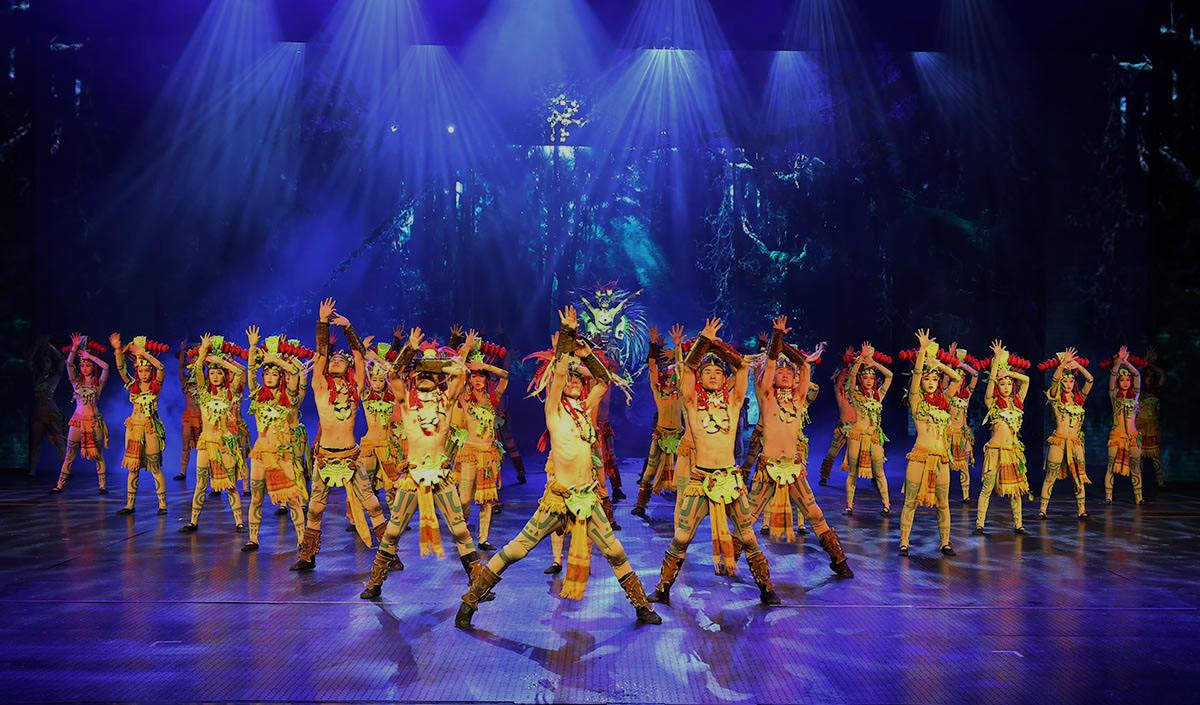 Dynasty. In 1276, the Yuan army broke into Lin’an and captured Song Gongzong, with this Southern Song Dynasty perished. However, some royal members and commons refused to give in. They escorted Song Gongzong’s brother Zhao Shi and Zhao Bing to escaped Lin’an and made Zhao Shi the emperor. Two years later, Zhao Shi died of illness, Zhao Bing ascended the throne. Yuan army conquered Song cities one by one and forced Zhao Bing and his followers to Yashan (current Xinhui, Guangdong). To avoid being humiliated by the Yuan army, over 800 royal members and subjects threw themselves into the sea. When Zhang Shijie, the general of the Song court's last navy, heard the news, he led about 100,000 soldiers and subjects to jump into the sea in despair.
Dynasty. In 1276, the Yuan army broke into Lin’an and captured Song Gongzong, with this Southern Song Dynasty perished. However, some royal members and commons refused to give in. They escorted Song Gongzong’s brother Zhao Shi and Zhao Bing to escaped Lin’an and made Zhao Shi the emperor. Two years later, Zhao Shi died of illness, Zhao Bing ascended the throne. Yuan army conquered Song cities one by one and forced Zhao Bing and his followers to Yashan (current Xinhui, Guangdong). To avoid being humiliated by the Yuan army, over 800 royal members and subjects threw themselves into the sea. When Zhang Shijie, the general of the Song court's last navy, heard the news, he led about 100,000 soldiers and subjects to jump into the sea in despair.
8-day Henan Tour with Shaolin Temple and Yuntai Mountain
Copyright © 2019 Lily Sun China Tours International, Inc. Terms &conditions | Privacy Policy | Sitemap